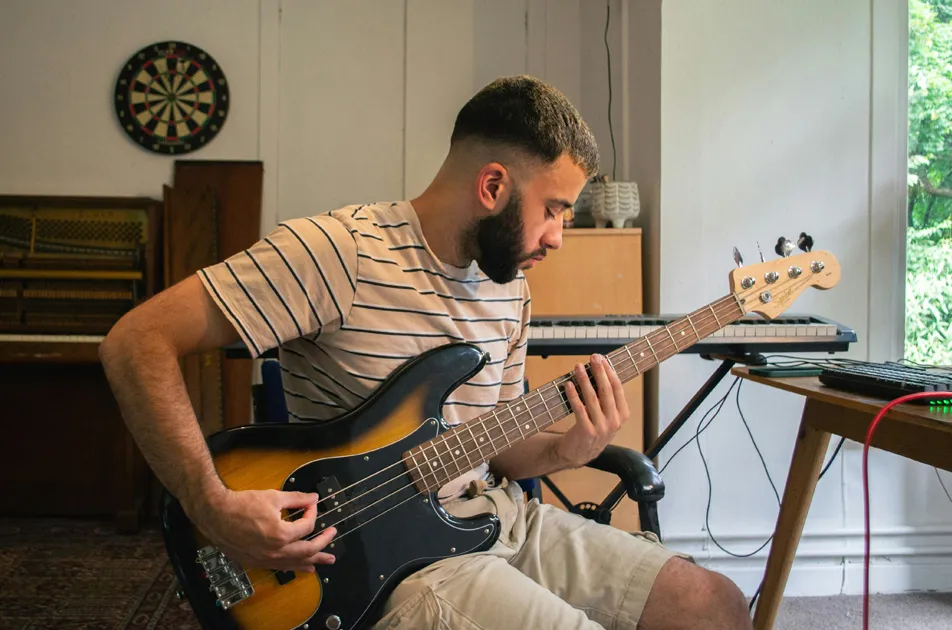By Peter Calandra, a NYC based Composer/Pianist/Guitarist/Educator. He has scored 40 films, written 2000 compositions for television and performed as a musician in the Broadway productions of Les Miserables, Miss Saigon, The Phantom Of The Opera, The Lion King, and Little Shop Of Horrors.
Congratulations! You've booked your first scoring gig. Let's assume you know the technical aspects of scoring. I'd like to discuss a few non musical things to think about before you start on a new project.
Working in film is a team effort.
It is very important to understand the hierarchy of this team and how you fit in. Along with the Director, who else has input in deciding musical choices for the film? Many times an Editor uses "Temp Music" for cutting picture before you arrive which can influence the Director requiring you to use it as a model. The Film Mixer may be creating an entire soundscape that structurally helps the story unfold and your music needs to work within that soundscape. Is the Producer hands on or do they leave the creative vision to the Director? Knowing all of this information before you start to compose and how to positively deal with it can be a great benefit in completing a project.
Oft times people do not know instinctively or have the training to describe what they want the music to sound like.
If you are working with a Director like this, it is your job to find a common ground to communicate with. I worked with one director who initially tried to explain what he wanted in standard musical terms. This went on for a few days with the demos I did for him not hitting the mark. He finally told me he was not comfortable talking about music that way. Eventually we hit on simply using adjectives to describe emotionally what the music should portray. It was then my job to translate those adjectives into sound. Every situation is different and this is an essential skill to develop.
Another key to working in this industry is producing on a deadline.
I hired someone recently to do a project. Before even starting they told me "I work on my time, not your time". That may be great if you are some sort of artiste creating in a vacuum but not appreciated in the real world with schedules and tight deadlines. While discussing methods to be creative on the spot is beyond the scope of this article, there are things you can do to keep focused on creating and not bogged down in counter productive activities.
Organization and preparation are essential to meeting deadlines. Here are some things I have found to be helpful:
Assuming you are using a computer, make sure your system is running well. Do any upgrades and installs before starting the project then test the system and do not upgrade any essential software in the middle of a project.
Have a consistent method of storing and naming sessions and mixes. Name your mixed audio files the same as the session files they were created from so it is easy to find for revisions. Always put your initials on every file as this helps to identify what music is yours.
Have enough hard drive space to complete the project and back up your files every day as you never know when a hard drive or computer can go down.
Create several templates you can easily import with sonic palettes for your project. It helps to have a consistent track order for your sessions making it easier to find different instruments. For example, when writing orchestral music in a sequencer, my tracks read from top to bottom like an actual score with Winds on top down to Strings on the bottom of the page.
Know how to use your software and how to troubleshoot and solve issues that come up. Time spent searching thru menus looking for a function can take your focus away from the flow of composing. I've been sequencing music since the mid 1980's and still try to learn something new daily. Keep neat and detailed notes of your discussions with the Director that you can easily reference. This gives you a greater chance of creating a piece that needs less revisions.
I hope you find some of these helpful and good luck on your new project. Scoring work can be an incredibly satisfying musical endeavor to pursue.
Related articles






